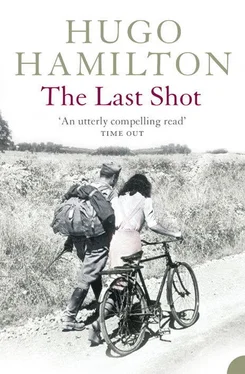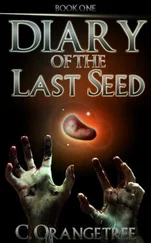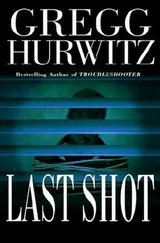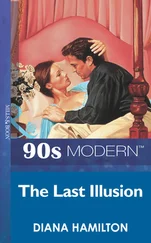He had a soldier’s instinct. Instead of calling for her again, he decided to remain silent. The advantage of revealing his own presence to Bertha would be outweighed by the fact that her attackers would know that too. He was talking about an enemy now. He knew there had to be men in the area; he assumed they were Polish or Czech exiles returning home. But he didn’t know how many. He imagined four, maybe five. He cursed himself for having left Bertha alone on the road.
Creeping along the side of the path, he approached the farm-house from a concealed point and examined all the windows of the house at first. There was nothing. Some of the windows reflected the sunlight. There was no sound anywhere except the ridiculous sound of birds. For some reason he looked at his watch to see what time it was. It was just past noon. It made him hurry. He edged along the wall and entered the yard. Flies gathered around him in the heat; he was sure they would give him away.
Flies give everything away. Franz realized why the dog had stopped barking. A swarm of flies hovered around a large brown animal stretched out at the side of the yard. The dog might as well have been asleep, but that was impossible. Franz ran over to the dog. A long hay-rake lay beside him. Blood, by now a dark maroon-coloured stream, still flowed slowly along the bright sand, taking it in grain by grain, granule by granule, coagulating. The dog’s tongue lay stretched out of his open mouth. It too had collected grains of sand and dust. The fresh wound above the dog’s eyes gleamed like a wet, red and brown cloth in the sun.
Franz listened. He heard nothing but water. Somewhere near by there must have been a stream, or a waterfall. Everything around here ran into the lake.
These were some of the irrational things that struck Franz as he turned to look around the farmyard, wondering where to find Bertha. He thought of Nuremberg. He thought of smaller dogs which his aunts kept all their lives. He thought of the noise his Wehrmacht boots would make along the gravel. Better to be in the forest. He had time to think of the fact that he could have just left and gone home on his own. And how crazy it was even to think of leaving her like that. He thought of Bertha, how beautiful she was. He had time to think that all of this was his own fault. He would fight them all, five or six, no matter how many of them there were.
He got ready to run. He wished he knew where he was going.
In October 1985, after my first visit to Czechoslovakia, I stopped in Nuremberg, intending to stay for a few days. The reason was to try and find Franz Kern. If he was in Nuremberg, then I would try and speak to him. I had no address, no contact, no lead whatsoever. What I had planned to do was to make a trawl through the telephone directory and see if such a person still existed in Nuremberg.
I stayed in a guest-house on the outskirts of the city. Every day I went into the city, into the city library, a short walk up the hill from the market square. Nuremberg is one of those fine German cities, restored to its original splendour. In the market square I bought the best of apples. I watched the figurines revolve on the outside of the cathedral. I also spotted a pigeon, trapped in protective netting around the many old plaster statues.
The first day, I copied out all the Franz Kerns and F. Kerns that existed in Nuremberg. I was aware that some Franz Kerns might be ex-directory. Then I took in the outer environs of Nuremberg as well. I had accumulated thirty-five Franz or F. Kerns in all. It happens to be a common name in Germany.
I began to phone them one by one, starting with the city of Nuremberg first. I had prepared my questions carefully: I was apologizing profusely for the intrusion, but I was in Nuremberg in search of a Franz Kern who spent the last days of the war in Czechoslovakia, in Laun. If anyone was to ask why I was looking for him, I would say I had an important but private message for him.
I got as far as ten Franz Kerns before I gave up. Each time, I was met with a slight hostility, sometimes incredulity and more often a short no. I spoke to a young Franz Kern who had not even been alive in 1945. Most of the people I spoke to were women, older women. Some of them were kind, perhaps quite pleasantly reminded of the past. One Frau Kern told me her husband Friedrich was in France throughout the war until he was injured and brought home. She said he was lucky he was injured, otherwise he wouldn’t still be alive. Another Frau Kern said her husband had ended the war in Berlin and spent some time in Russian POW camps. He won’t talk about it, she said, remembering that she was talking to a stranger on the phone. She thought I was a reporter.
Finally, what put me off was the phone-call to a Frau Kern who told me that her husband had been in Czechoslovakia, south, near Brno, for a few years but was then sent to the Russian Front in 1944. He never came back. There was a considerable silence on the phone. She was obviously quite old. I felt terrible, dredging up this grotesque past which people had almost come to terms with.
I decided to leave it alone.
I spent a night in the bars around Nuremberg. You can sit quite happily in a German bar and watch people come and go. Sometimes noisy groups take over. You see men sitting on their own. Sometimes you see two women come in on their own. After a while the waitress will remember you and even acknowledge your presence by bringing up a further beer without you asking for it. They were playing Tom Waits a lot at the time. The owners of the bar had stuck a patchwork of cinema posters on the ceiling, among them some old, post-war centrefolds. Occasionally, you could see somebody distracted from the general conversation glancing up at the brown posters.
I got a taxi back to the Pension where I was staying. If I’m right, the guest-house was called Edleman. I came to the decision to forget this search for Franz Kern altogether. I didn’t like the idea of dragging through Nuremberg for days, asking for 10 Pfennig pieces and phoning from yellow phone-boxes to talk to widows who had lost everything. It was cruel.
Besides, I thought it would be extremely unlikely that Franz Kern would want to speak to me. I was certain he would refuse to reopen the past and explain it to a new generation totally unconnected with the events and unable to understand the way people felt in the war.
I got to my room, my Zimmer, and fell asleep. But I never sleep much on alcohol. Soon enough I was awakened again by a familiar creaking noise. The walls were thin. It was coming from behind me. You can’t mistake that creaking rhythm of a couple in the room next door. Sometimes it was confirmed by a muffled groan. I sat up, driven by curiosity, maybe excitement, maybe anger?
I heard the pace quicken. It seemed to miss a beat and then picked up with renewed speed, sawing to and fro steadily to a racing counterpoint. I heard the voice of a woman pleading. It occurred to me to bang violently on the wall, to stop them, to interrupt at the most vital moment. I thought of covering my head with a pillow. Then it occurred to me to cheer them on, like a supporter. I did nothing and just sat up, a captive audience.
I heard the woman raise her voice: Ja … ja … ja …louder and louder, Du … Du … until it ended with a clear shout of ecstasy. The final rapture shout was a bit over the top, I thought. Maybe she was faking.
Orgasmus-schrei …
There was complete silence. I lay back down again. My heart still racing. My eyes open. I could see the white ceiling. I was full of raging desire. Then I felt indifferent. Glad to be alone. Tired. Drunk.
Ready to leave Nuremberg.
Читать дальше
Конец ознакомительного отрывка
Купить книгу












